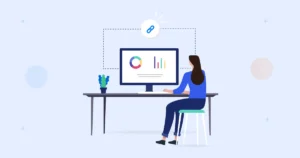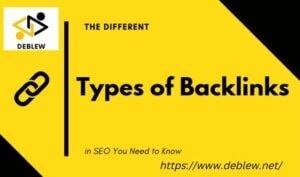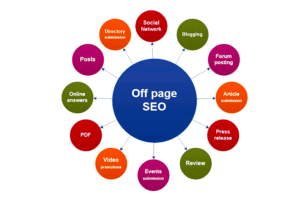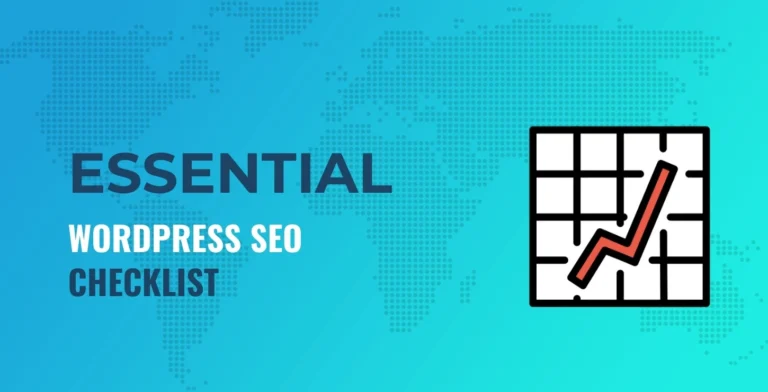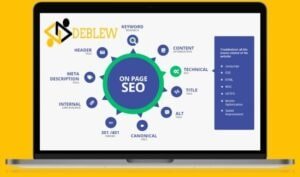SEO Strategies for Beginners | Guide to Boost Your Website Traffic
Search Engine Optimization (SEO) is the practice of improving your website’s visibility on search engines like Google. For beginners, it can seem overwhelming, but mastering SEO is crucial if you want to grow your website’s traffic and reach a larger audience. This guide will break down the fundamentals of SEO, providing practical strategies that are easy to implement. By the end, you’ll have a clear roadmap to start optimizing your site.
Understanding the Basics of SEO
Before diving into strategies, it’s important to understand what SEO is and how search engines work.
What is SEO?
SEO is the process of optimizing your website so that it ranks higher in search engine results pages (SERPs) for specific keywords. The higher your site ranks, the more likely users will click on it, increasing traffic.
How search engines work:
Search engines like Google use crawlers to scan web pages and understand their content. The crawlers then index the pages and rank them based on factors such as relevance, content quality, and user experience.
On-page vs. off-page SEO:
- On-page SEO refers to optimization done directly on your website (like content and structure).
- Off-page SEO refers to actions taken outside of your website (like earning backlinks).
Keyword Research: The Foundation of SEO
Every SEO strategy begins with keyword research, which involves identifying the terms and phrases that potential visitors are searching for.
Why are keywords important?
Keywords help search engines understand what your content is about and match it with user queries. If you optimize for the right keywords, you can attract the right audience.
How to find the right keywords:
There are several tools for keyword research, such as:
- Google Keyword Planner: Offers keyword ideas based on search volume.
- Ubersuggest: Provides keyword suggestions and competitor analysis.
Long-tail vs. short-tail keywords:
- Short-tail keywords are broader, more competitive terms (e.g., “SEO”).
- Long-tail keywords are specific and often easier to rank for (e.g., “beginner SEO strategies”).
Keyword placement and density:
Once you’ve identified your keywords, it’s important to place them naturally in your content, title, headings, and URL. Avoid keyword stuffing, as it can harm your ranking.
On-Page SEO Techniques for Beginners
On-page SEO is about optimizing the elements on your website to make it more search-engine-friendly.
Title tags and meta descriptions:
- Title tags should be clear and include your primary keyword. They tell search engines what your page is about.
- Meta descriptions are short summaries that appear in search results. Although they don’t directly affect rankings, they can influence click-through rates.
URL structure and optimization:
Your URLs should be short, descriptive, and include your target keyword. For example, use yourwebsite.com/beginner-seo-tips instead of yourwebsite.com/page1?id=567.
Internal linking:
Linking to other pages on your site helps users navigate and signals to search engines that your content is connected and valuable.
Image optimization:
Use relevant images with descriptive file names and alt text that includes your keywords. This helps search engines understand your images and improves accessibility.
Mobile-friendly design:
More than half of global web traffic comes from mobile devices, so having a mobile-friendly design is essential. Use responsive design to ensure your site looks great on all devices.
Content Creation and Optimization
High-quality content is the backbone of SEO. Search engines prioritize websites that provide valuable, relevant information.
Importance of high-quality content:
Content should be original, informative, and engaging. It must address user intent—what users are looking for when they type in a search query.
Creating SEO-friendly blog posts and articles:
- Use headers (H1, H2, H3) to structure your content, making it easier for users and search engines to follow.
- Break up large blocks of text with short paragraphs, bullet points, and images to improve readability.
Optimizing for readability and user experience:
Good readability keeps visitors engaged, reducing bounce rates. Use simple language and maintain a natural flow of information.
Off-Page SEO: Building Authority and Backlinks
Off-page SEO involves activities that take place outside your website but still influence its ranking.
What is off-page SEO?
It mainly refers to backlinks, which are links from other websites pointing to your site. Search engines see backlinks as a sign of authority and trustworthiness.
The importance of backlinks for ranking:
The more high-quality backlinks your site has, the more credible it appears to search engines. Backlinks from reputable sites can significantly boost your rankings.
How to earn backlinks:
- Guest posting: Write articles for other blogs and include a link back to your site.
- Outreach: Contact relevant websites and ask if they’ll link to your content if it’s valuable to their audience.
- Social media: Share your content on social platforms to attract attention and potential backlinks.
Technical SEO: The Backbone of a Strong Website
Technical SEO ensures that search engines can crawl and index your website without issues.
Ensuring a fast-loading website:
Page speed is a ranking factor. Use tools like Google PageSpeed Insights to measure and improve your site’s loading time by compressing images, leveraging browser caching, and minimizing code.
Fixing broken links and 404 errors:
Broken links and 404 error pages hurt user experience and SEO. Regularly check your site for broken links using tools like Screaming Frog and fix or redirect them.
XML sitemaps and robots.txt files:
An XML sitemap helps search engines understand your site structure and index it more efficiently. A robots.txt file tells search engines which pages they should not index.
HTTPS and SSL certificates:
Security is a priority for both users and search engines. Installing an SSL certificate and having HTTPS ensures that your site is secure, which can positively impact rankings.
Local SEO for Beginners
If you run a local business, optimizing for local SEO can drive customers to your door.
Importance of local SEO:
Local SEO focuses on optimizing your website for location-based searches, making it easier for people in your area to find you.
Setting up Google My Business:
Claim your Google My Business listing, fill in all relevant details, and update it regularly. This will help your business appear in local searches and Google Maps.
Optimizing for local keywords:
Use location-specific keywords, such as “SEO services in [Your City],” throughout your website.
Getting local reviews and citations:
Encourage happy customers to leave reviews on platforms like Google and Yelp. Citations (mentions of your business on other websites) also improve local SEO.
Tracking SEO Performance and Adjusting Strategies
SEO is not a one-time task. It requires ongoing monitoring and tweaking.
Tools to track your SEO efforts:
- Google Analytics: Tracks traffic, user behavior, and conversions.
- Google Search Console: Shows how your site is performing in Google search, including keyword rankings and indexing issues.
Key metrics to monitor:
- Traffic: Are more people visiting your site?
- Rankings: Is your site climbing up the SERPs for your target keywords?
- Bounce rate: Are users staying on your site or leaving quickly?
How to refine your strategy:
Analyze the data from these tools and adjust your SEO efforts. For example, if certain pages are underperforming, consider revising the content or improving keyword targeting.
Common SEO Mistakes to Avoid
Beginners often make common SEO mistakes. Here’s how to avoid them:
- Keyword stuffing: Overloading content with keywords can hurt your rankings.
- Duplicate content: Having the same content on multiple pages confuses search engines and lowers your ranking.
- Ignoring mobile users: A non-mobile-friendly site will perform poorly in search rankings.
- Focusing only on search engines: Always prioritize the user experience. If users are happy, search engines will be too.
Conclusion
SEO is a powerful tool for driving organic traffic to your website, but it takes time and consistency. By following these beginner strategies, you’ll be well on your way to improving your site’s search engine rankings. Remember to stay patient and make adjustments as you learn more about what works best for your audience and niche. Start implementing these strategies today, and watch your website grow!


